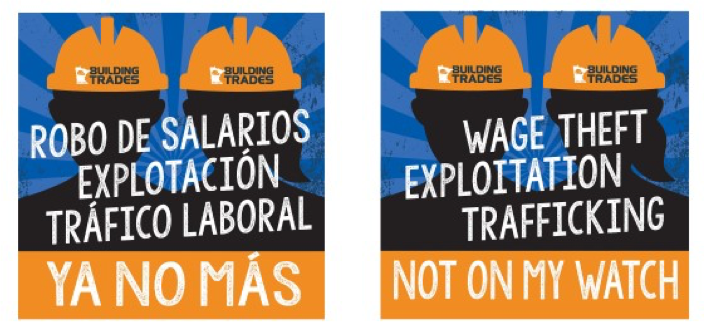

Share
When a notorious wage broker pleaded guilty to two felony charges in Hennepin County this week, it was welcome news for unions and community groups working to rid Minnesota’s construction industry of labor abuses.
“We are grateful that the legal system is holding those who commit wage theft and illegal trafficking of construction workers seriously,” said Jessica Looman, the Minnesota Building and Construction Trades Council’s executive director, after Ricardo Batres pleaded guilty to labor trafficking and insurance fraud Monday.
The plea deal confirms that Batres recruited immigrant workers to fill jobs on Twin Cities construction sites, and he denied some their legally guaranteed rights on the job by exploiting their undocumented status.
Sentencing is not until January, but prosecutors will recommend Batres serve up to nine months in the county workhouse and five years of probation. He could also be barred from inclusion in future state or federal construction contracts.
The Building Trades Council, which represents the state’s unionized construction workforce, called Batres’ case the first big test of Minnesota’s labor trafficking and wage theft laws.
It’s unlikely to be the last.
In July, 14 Minnesota construction unions launched “Not On My Watch/Ya No Mas,” a campaign to heighten awareness of wage theft and labor trafficking and to assist exploited construction workers.
Dan McConnell, manager of the Minneapolis Building and Construction Trades Council, said Batres’ plea is an indication of the new initiative’s potential.
“The case against Ricardo Batres shows the strength of the construction community when we stand together against wage theft and labor trafficking,” he said. “It’s imperative that we protect the health of the construction community by continuing to call out bad actors who exploit our workers for their own gain.”
Unions are teaming up with community groups like Advocates for Human Rights and the local worker center CTUL to educate workers and identify abuses. CTUL organizers say they are currently investigating three other cases of labor trafficking and over a dozen cases of wage theft in the Twin Cities construction industry.
CTUL Co-Director Veronica Mendez Moore said the Batres case reflects “an industry in distress,” and added that the problem goes beyond labor brokers.
“Real estate developers and their financial backers are directly profiting from this kind of labor exploitation,” she said. “While some sectors of the construction industry are unionized and abide by human rights standards, there is a dark underbelly that does not.”
Minnesota’s new wage-theft law, among the toughest in the nation, will make it easier for officials to patrol that dark underbelly. Passed earlier this year, the law creates additional protections for workers and stiffens penalties for employers that commit wage theft.
Labor traffickers like Batres don’t just show up on construction projects, of course.
“This is a big problem in the industry,” said Burt Johnson, a spokesperson for the North Central States Regional Council of Carpenters. “Construction contractors and developers can no longer hide behind hiring a low-bid contractor when those bids are based on a criminally low price.”

